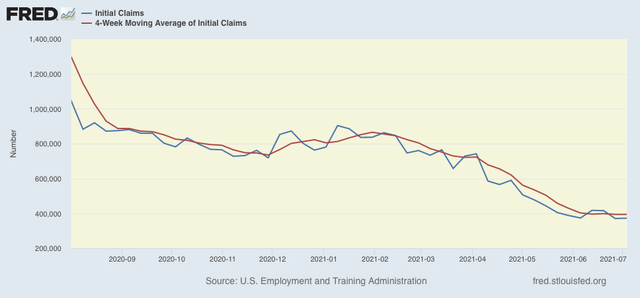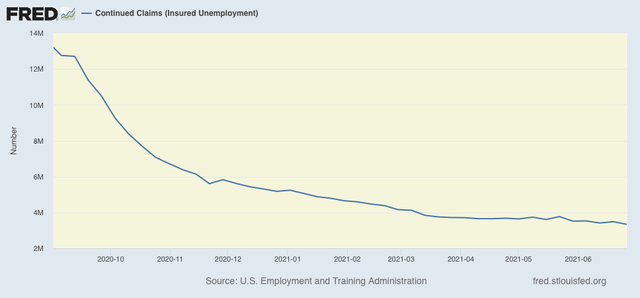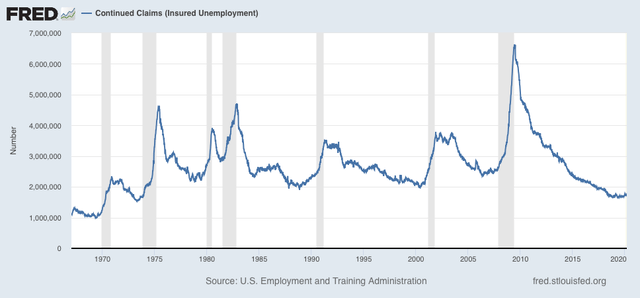Trend in new jobless claims flattens: the virus remains in control in the unvaccinated States New jobless claims are the most important weekly economic datapoint with regard to the effects of vaccination progress. Four weeks ago I wrote, “I think we are going to see two tracks going forward from here, as near-normalcy does return to the more vaccinated parts of the country, while attempts to return to normalcy fail in the laggard regions.” Last week I elaborated to say, because progress in vaccinations had largely stalled in the past month, “that implies at least a stall in the decline in new claims, and – I actually suspect – an increase, perhaps to about 450,000 per week or so.” This week showed evidence of continued progress, but only
Topics:
NewDealdemocrat considers the following as important: Healthcare, jobless claims, US EConomics
This could be interesting, too:
NewDealdemocrat writes JOLTS revisions from Yesterday’s Report
Bill Haskell writes The North American Automobile Industry Waits for Trump and the Gov. to Act
Bill Haskell writes Families Struggle Paying for Child Care While Working
Joel Eissenberg writes Time for Senate Dems to stand up against Trump/Musk
Trend in new jobless claims flattens: the virus remains in control in the unvaccinated States
New jobless claims are the most important weekly economic datapoint with regard to the effects of vaccination progress. Four weeks ago I wrote, “I think we are going to see two tracks going forward from here, as near-normalcy does return to the more vaccinated parts of the country, while attempts to return to normalcy fail in the laggard regions.” Last week I elaborated to say, because progress in vaccinations had largely stalled in the past month, “that implies at least a stall in the decline in new claims, and – I actually suspect – an increase, perhaps to about 450,000 per week or so.”
This week showed evidence of continued progress, but only very slowly. New jobless claims increased by 2,000 from last week’s new pandemic low, to 373,000. The 4 week average of claims also declined by only 250 to a revised new pandemic low of 394,500. Here is the trend since last August:

At the peak of the pandemic lockdowns in spring 2020, new claims were running 6 million to 7 million per week. This year, from late February into May, claims had trended down an average of roughly 100,000 per month. This has slowed sharply over the last 4 weeks to a decline of only about 25,000. The less volatile 4 week average is only down 8,250 from 5 weeks ago.
Continuing claims, which are reported with a one week lag, and lag the trend of initial claims typically by a few weeks to several months, have only declined about 13% from roughly 3,800,000 over the past 4 months, reported today at 3,339,000 – which was, nevertheless, another new pandemic low:

At least some of this decline *may* be due to many States’ termination of all extended jobless benefits due to the pandemic.
A long term perspective shows that this week’s level is equivalent to early during the recoveries from most previous recessions, versus at 2,000,000 or below later in strong expansions:

My ultimate target for economic success from vaccinations is for claims to be an average of 325,000 or below, which would signify a return to normal expansion levels in the past 30 years. But with more than half of all States now showing increases in new cases, and deaths following in a few of them, the virus remains in control in those States – and how employers and potential customers will behave in response to that is very much open to question.
